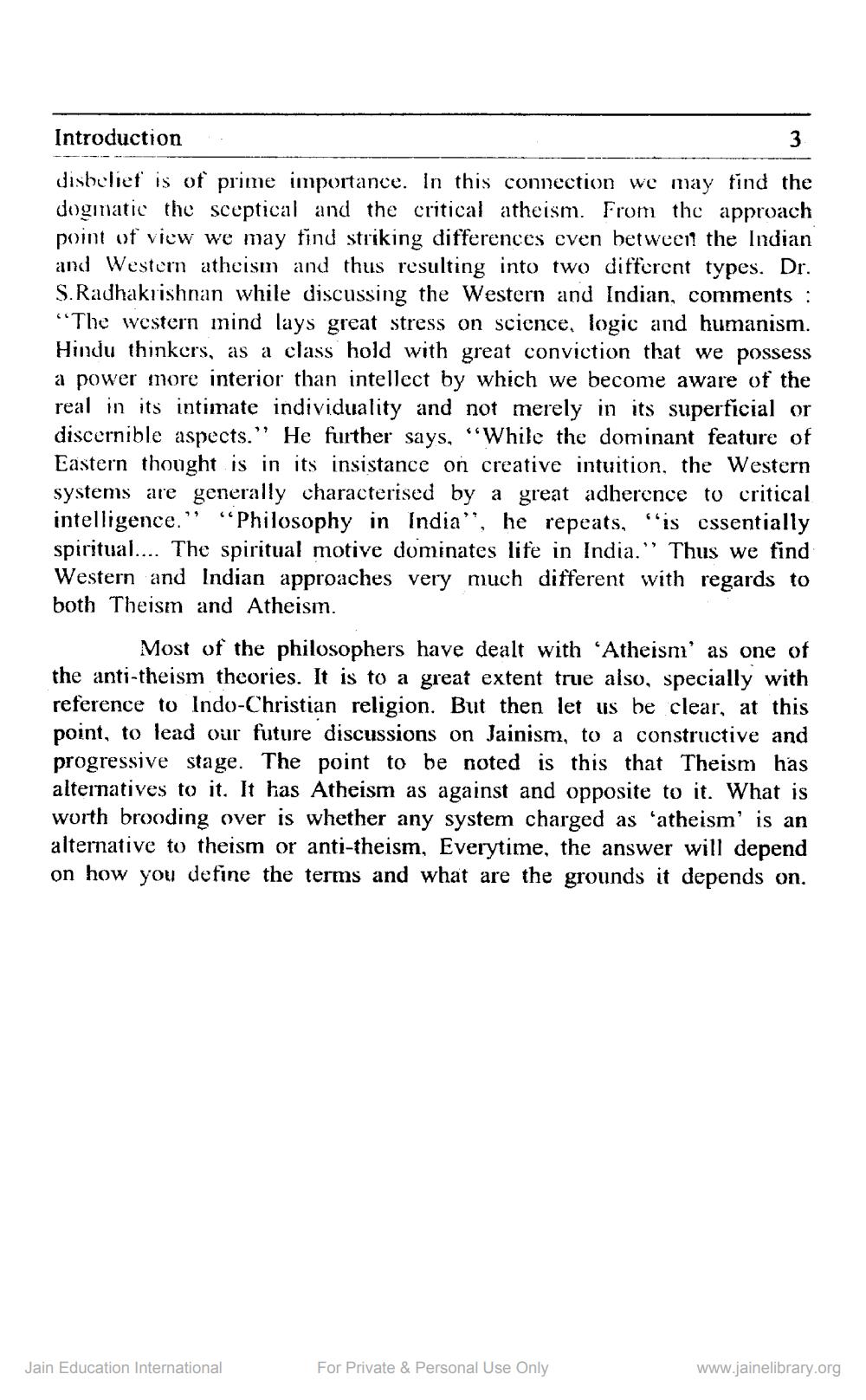________________
Introduction
in
disbelief is of prime importance. In this connection we may find the dogmatic the sceptical and the critical atheism. From the approach point of view we may find striking differences even between the Indian and Western atheism and thus resulting into two different types. Dr. S. Radhakrishnan while discussing the Western and Indian, comments : “The western mind lays great stress on science, logic and humanism. Hindu thinkers, as a class hold with great conviction that we possess a power more interior than intellect by which we become aware of the real in its intimate individuality and not merely in its superficial or discernible aspects." He further says, “While the dominant feature of Eastern thought is in its insistance on creative intuition, the Western systems are generally characterised by a great adherence to critical intelligence." “Philosophy in India", he repeats, "is essentially spiritual.... The spiritual motive dominates life in India.” Thus we find Western and Indian approaches very much different with regards to both Theism and Atheism.
Most of the philosophers have dealt with 'Atheism' as one of the anti-theism theories. It is to a great extent true also, specially with reference to Indo-Christian religion. But then let us be clear, at this point, to lead our future discussions on Jainism, to a constructive and progressive stage. The point to be noted is this that Theism has alternatives to it. It has Atheism as against and opposite to it. What is worth brooding over is whether any system charged as 'atheism' is an alternative to theism or anti-theism, Everytime, the answer will depend on how you define the terms and what are the grounds it depends on.
Jain Education International
For Private & Personal Use Only
www.jainelibrary.org




